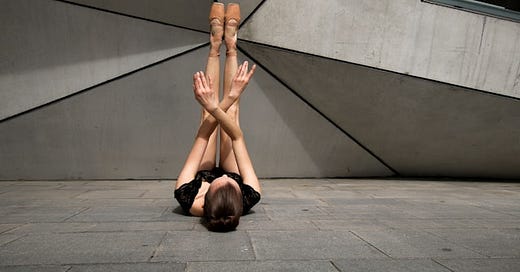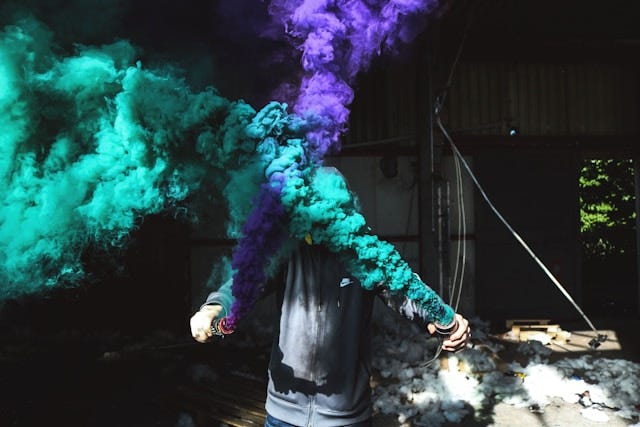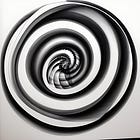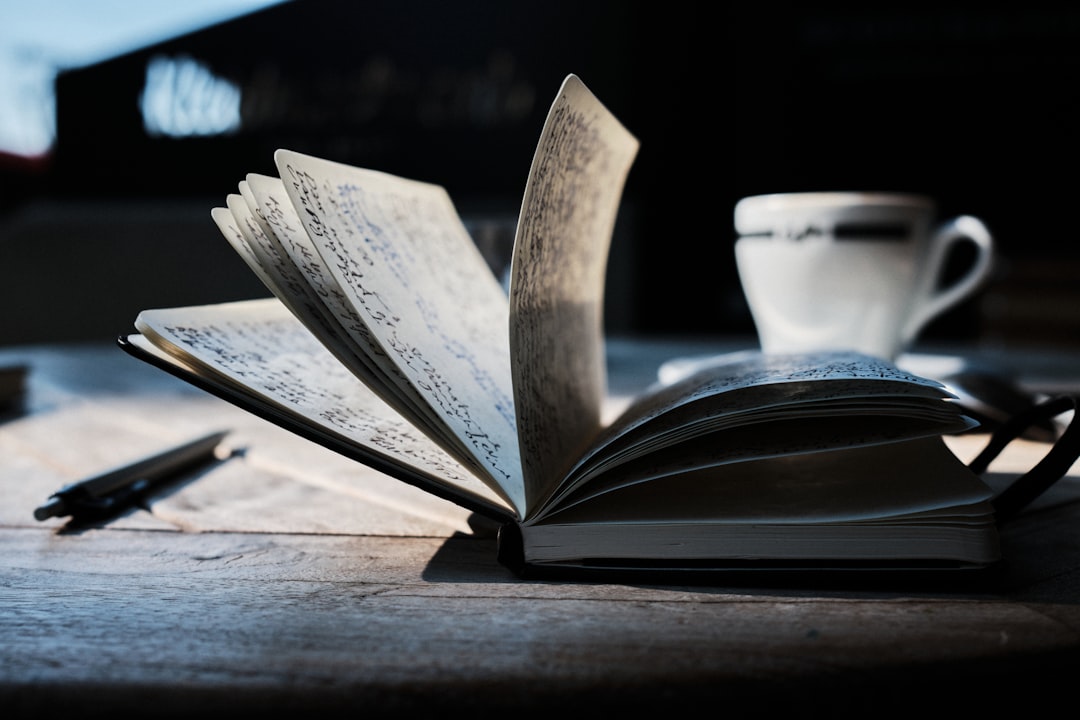Creativity and Health have an ongoing conversation and my passion is to listen in and improve their relationship
One way of looking at how our human experiences of the creative urge and mental challenges impact one another and how we can be gentle about that
When people ask what I write about, I try succinctly to explain that I write at the intersection of art and mental health. Naturally, most people assume that I write about art as therapy. I do. In fact, for over a decade, I honed my expertise in writing about the mental and physical health benefits of crochet and other crafts. However, that’s such a small part of what I’m exploring these days, having broadened my scope to look at the many nuanced and complex ways that mental health “symptoms” impact an artist’s creative process and content. When I say that, the most frequent response I get, and it’s surprising to me how often I hear it is, “oh, like Van Gogh!” Yes. And no.
Van Gogh is a clear example of an artist who lived with some kind of anguish that can be attributed to symptoms of a mental / physical health diagnosis. He’s been posthumously diagnosed with … well, just about everything it sometimes seems. As Sarah Cascone wrote for Artnet in 2016: “Among the theories floated over the years are bipolar disorder, temporal lobe epilepsy, syphilis, borderline personality disorder, cycloid psychosis, and schizophrenia.” He famously cut off his own ear and died by suicide … although there’s even been controversy around the truth of that. But what I’ve never seen any controversy over is whether or not he was an artist. Clearly, he was an artist.
But what makes someone an artist? And what does it mean for someone to have mental health issues? I’ve looked at this from every angle, considered my own lived experience as a full-time writer/artist with recurring chronic depression, and studied/conversed about it socially and academically and professionally. And where I land, personally, is that we are all artists (or artistic, or creative, however you may want to phrase that) and we all have mental health challenges (to some degree or another.) I believe that we each exist on a spectrum of creativity as well as a spectrum of health, that we move back and forth along those spectrums throughout time but basically have a baseline and a range, and that those two spectrums intersect in unique and interesting ways for each of us. It’s that - the intersection of the two spectrums - that interests me.
As someone who has experienced life-threatening mental health challenges, I don’t say lightly that I believe we all have mental health challenges. In terms of diagnosis, most “disorders” or “diseases” are determined to be so by the fact that they seriously negatively impact one or more areas of your life - your finances, your health, your relationships. Surely there are people in the world who never experience “symptoms” to such a degree. But from a human perspective … well, being a human is hard! Who doesn’t experience some degree of human suffering? If we are to believe the statistics, about one in three adults in the US have experienced anxiety and about ten percent have experienced clinical depression. This doesn’t include the symptoms of stress, burnout, sadness, grief … the everyday human stuff.
For a diagnosis of major depression, you have to experience sadness and or loss of interest in things you’ve enjoyed for most of the day on most days for two weeks or longer. Other symptoms include hopelessness, insomnia or hypersomnia, fatigue, feelings of worthlessness, changes in appetite … Perhaps you’ve never experienced depression, but have you ever experienced these symptoms? Have they ever affected your daily life or relationships or career or ability to create art? I’m not saying that all people have a mental health diagnosis or that the impact of experiencing a mental health crisis isn’t devastating; I’m saying that we all exist on a spectrum of wellness and the two ends of the spectrum aren’t really so far apart as sometimes people think.
If the spectrum was a scale of 1 to 5, with 1 being completely out of touch with “reality” and incapable of caring for yourself due to mental health symptoms and 5 being highly functioning and not feeling like mental health symptoms ever significantly impact you, then I personally would say that I exist in the 2-4 range of the spectrum, often around a 2 or 3. My baseline is probably 2.5. Most days, I’m “fine” and some days I’m great. I maintain a full-time creative career and solid relationships. But I have recurring depression. I’ve had three bouts of dysthymia or persistent depressive disorder in my lifetime (periods when major depression lasts two years or longer) and those came with suicidal thoughts. I never self-harmed or was actively suicidal, but I often wished I weren’t alive. One of those periods was within the last year, and it caught me off guard when I realized it, because I’ve put so many protective tools in place to stay “okay” and practice self care and have a support system. We’re all somewhere on this spectrum, and we move along it a little bit depending on life circumstances and all sorts of contributing factors.
I think the same is true for creativity, although it’s at least as hard to quantify as our personal mental health. I subscribe to the school of thinking that all humans are creativite, artistic, intelligent. That, for example, there’s not one kind of human intelligence but many (linguistic, musical, spatial, mathematical … etc.) I believe that we are all creative in the way that we approach daily living, and that there’s an art to how we navigate our relationships. Some people identify clearly as artists, prioritize their creative, make hobbies or careers in classic arts like painting or sculpture or filmmaking. Some people insist that they are not creative and although I’d argue that they probably are, they may see themselves as being on the opposite end of the spectrum from “artists.” But again, I see it as a spectrum. On a 1-5 scale, I would say that my baseline is probably a 4, and I’m often at a 5, but sometimes I’m at a 3. That’s just my interpretation. You could make your own.
So, what interests me is how this intersects. How does where I’m at on the mental health spectrum impact where I’m at on the creativity spectrum and vice versa? I can tell you that when I’m at the low end of mental health, I usually drop lower on the creativity spectrum. For me, the most persistent symptoms of depression are extreme fatigue, indecision, and a sense of pointlessness. It’s hard, impossible sometimes, to “make art” when I feel completely exhausted and also like it doesn’t matter anyway. But it’s not a simple equation. Sometimes the human urge to create is so strong for me that I persist anyway - and sometimes that moves me up a little higher on the mental health spectrum and sometimes it doesn’t. I’m not sure what the equation is exactly, but I keep investigating it because I think it’s fascinating personally as well as more broadly.
Sometimes my creativity is strong in a low mental health period, not in the sense of “art” - I’m not writing, for example - but in the approach to trying to find a way to feel okay or even good about living life despite the things about it that feel bad. Sometimes I am creative in my approach to relationships or how I make my money or how I otherwise adapt to meet my changing mental health needs over time. Sometimes the art I create is the words that I’m saying to a therapist as I try to puzzle through what it all means and how to keep moving forward. Having worked from home for two decades, I’ve never been someone to stay in pajamas all day and I’ve never owned yoga pants except for when I briefly actually did yoga … so sometimes creativity for me is simply in choosing my fashion for the day because that brings me a little bit of delight.
I have pictured the two spectrums as an X and Y axis and the place where they overlap is my area of interest. I’ve also pictured them as two horizontal lines, each a different color, overlaid on top of one another. Neither of this quite captures what I’m trying to convey but I haven’t conceived of a better description, yet. I keep working at it.
Lately, I’ve been picturing the two spectrums as their own individual spirits - one named Creativity and one named Health - and what I’m interested in is the conversation that they’re having with one another. At a personal level. In terms of lived experience, the conversation between My Creativity and My Health. When doing an artist interview, the conversation between the Artist’s Creativity and the Artist’s Health. When researching artists from the past, the conversation … well, let’s say I’m studying Van Gogh, then it would be the conversation between Van Gogh’s Creativity and Van Gogh’s Health.
If I could sit them both in a chair and listen in on their conversation, I would be interested in knowing: Hey Creativity, how do you feel about Health? What are your highest goals and dreams and ambitions and how does health affect those? What are your biggest fears and how does Health help or hinder them? Hey Health, what does Creativity do to you? When Creativity is powerful, how does that impact you? What do you look like when you are your best self and how does Creativity affect that? I would ask and listen and observe … with the hope of understanding how to help them each be their best, truest, most authentic selves and also to have the best relationship between them.
The “symptoms” of a mental health challenge do impact creativity - but the ways in which they do so are complicated and nuanced and individual. While it’s common for depression’s fatigue to reduce artistic productivity, that’s not always the case. While it’s common for bipolar hypomania to correspond with increased inspiration, that’s not always the case. Hallucinations can be so strong that they stop an artist from creating at all or they can be so inspiring that they lead to a period of amazing creativity. The compulsiveness of a condition like OCD can translate into very organized work or an inability to even begin work.
Likewise the “symptoms” or habits or traits of creativity do impact mental health, also in unique and individual ways. Curiosity can make you feel hopeful about life and improve your wellbeing or it can distract you and lead you to seek out information in self-destructive ways. Sensitivity can lead you to gain deep insights that make life feel rich and meaningful or to get completely overwhelmed by everyday experiences.
Creativity and Health are in a relationship and it’s complicated. It varies by person and it varies within people. But I do believe that we all have some drive or capacity for creativity and we all have some kind of experience of health as humans and so the way it intersects and plays out captures my interest endlessly and that’s what I’m studying and sharing here and in my books and other work.
I study this in large part by asking creatives about their experiences with the ways in which mental health has impacted their creative process, content, medium, productivity, artistic identity and art business. The wealth of information in these interviews is astonishing, and I’m always humbled by what people share with me. See many of these interviews right here.












Fantastic work. Keep it up 👌🏽
"But from a human perspective … well, being a human is hard! "
this is not said enough!